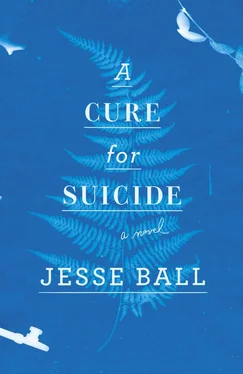It rained all that day and into the next. When the rain passed away, I made another suggestion: that we take a short drive. There is an old mill we could go to, I saw it on the road, so I told her. I have never been there, she said, though I lived here for such a long time. We passed it often, and a feeling of mystery has long lain about it. The idea that we should go there, I love it, she told me. Let’s take some things with us and have a picnic. As she dressed, I began to tell her about an experience I had once had. Years ago, I said, when I first joined the civil corps, I traveled to many far places. In one of them, we were working to build a bridge that would connect two small towns. The idea was that these two small towns, each one on the opposite side of a river, would, when the bridge was built, become one single city. Although there had long been antagonism between the two towns — a history going back decades, perhaps even hundreds of years, of rancor, still it was believed the bridge would solve everything. We lived in tents along one side of the river. This was a relatively new part of the republic. There were still measures there in place that did not exist elsewhere, that no longer exist anywhere. One was prison. There was another worker, an older man, who shared my tent, along with three or four other older men. One day, he found that someone had been going through his things. He found that some old photographs of his had been taken, photographs of his wife and child. I did not understand why it was important then. It was beyond me, but he was enraged. There outside the tent, he confronted the other men, including one who he thought, he was sure of it, was the thief. We were using heavy steel cable to make the bridge, and there were pieces of it, cut pieces, lying around the camp. One was in his hand, and he struck the thief with it. To me it seemed an inconsequential blow. The cable was heavy, very heavy, and the blow was slow. I watched his arm travel through the air slowly. The thief did nothing to stop it. He seemed frozen. The cable went to the space where his head was, and moved the head out of the way, it moved the head to a place adjacent from the place where it had previously been. The one who had taken the photographs fell to the ground and was completely dead. He probably stopped breathing before his body reached the ground. So, I told Rana, as she dressed for our outing. She loved stories of this kind, and I could see by the way she drew her clothes on over herself that this was a good time. Where, for another audience, I might have stopped then, seeing that I had horrified them, for her I continued, so I told the interlocutor. I told her that, of course, the man was taken away. He was imprisoned in a place not ten miles away. There was a tribunal that decided on his fate, and he was put away. I worked on that bridge for another year, and every week or so, I would travel to the prison to visit him. It was a mid-size place, with a high electrified fence surrounding it. I would come, and there would be a group of other people waiting to visit. We’d all stand in line and, at some point, would go inside. While we stood in line, we would talk with each other. I remember the first time I went, I was standing with a woman my own age, whose husband was incarcerated. She asked me whom I was visiting, and I told her that it was a friend of mine, a man I had often played cards with. I got carried away, and began to speak romantically about his fate. I was there on the line, a young man myself in a place far from where I had grown up, full of my own life, and in describing the condition and affairs of my friend to this young woman, I went overboard. I said that he was unfairly sentenced, that he had had his reasons for doing what he had done, and that they were good reasons. I spoke very rationally and explained all about why he didn’t deserve to be in the prison, in a way that admitted no doubt in my mind that we were all of us, she and I, and the others in line, a part of an injustice. I imagined that her husband was wrongfully inside, or I came to imagine it in the course of my speech. Although at the beginning of my foolish little speech, I knew that my friend was guilty, and that this woman, that her husband was probably guilty, too, by the end, I had been carried away. I had tried with my speech to establish camaraderie with her on the basis of this injustice. She would have none of it. She turned away, actually refused to look at me, and said, my husband is in prison for raping a woman who lived in the apartment below us. He has no right to have visitors, but still I come, I don’t know why. I stood there in the line, actually trembling. Now, I told the interlocutor, when I said this to Rana, she was not at all horrified, as everyone else had been. Each person to whom I had told this story had been moved to distaste, had looked at me in a sad new light. That I should have such a story and feel compelled to say it out loud, it was horrible. If it were true, then it was awful. If it were an invention, it was almost worse. Which was worse, the invention or the truth — actually, it was hard to say. That was the usual reception of my story. But, Rana, just brightened up. She had finished dressing. She was settling a light jacket over her shoulders. She said to me, I would love to go and see that bridge. Can we?
And we set out driving for the mill, and in the distance ahead of us, we could see the storm receding. We are pursuing it, I said. Then she reminded me of the storm map that she had bought me, and we fell to speaking of my room in the boardinghouse again. Have you, I asked the interlocutor, has anyone ever done something for you so completely beyond all possibility of repayment that you just stand there agog, helpless in their presence? That is how it was for me. When I brought her to my room, there in the shabby boardinghouse, a place where half the windows were boarded up — rooms in which people still lived were boarded up, a boardinghouse because people stayed there, but also, because it was falling apart, it was held together by shabby boards — I brought her there, showed her my room and its absence of things, and she in all her good grace was pleased, delighted, fell even more in love with me, and went off. That it should have happened that way was amazing, but what happened next was this. I went to work at the antiques store where I had a position, and when I came back at night, expecting the same — some pieces of cheap paper, a pallet, a chair, what I found was this: I had given her a gift, I had presented my life to her as numerous notes on paper, taped in the absence of things, as shadows of a sort, in order that she could see whom it was that she had met, when she had met me. For a long time, I had hidden my things, my gathered physical life from her, but finally I had gone to present it to her, and I had failed, I had waited too long, my things were gone; yet, I had created this simulacrum, and given that to her in its place. Knowing her capacity, I knew that she could take my descriptions and hold them all gently up together at once, and that she could feel what the room had been like, and judge me. I wanted that judgment and so I had given that gift to her. Then, she had come back in the days following, she had come back, and, she must have had some help. I don’t know how she did it, how she could have performed such an action, but, using my meticulous descriptions, she searched through the city for each and every one of the belongings named and described on my sheets of paper. Using the descriptions, she matched each to an object as like to it as possible. She brought these objects together, and set them down, each and every one, in the place I had said they should be, and recompleted the room that had been stolen. Somehow, she had stolen into the room, bypassing the lock, and she had replaced every one of my things. A framed photograph of a lunch counter, endlessly continuing its perspective off into the bottom right, a hundred stools or more, punctuated again and again and again by a neatly dressed sodajerk with a white hat. A small painting of a rat, in the Chinese style. An old fountain pen, half size, with a notebook into the binding of which the pen fit, and in the binding of which there was a small pot of ink actually bottled and held fast. A large Spanish folding knife, tied in a cloth and hanging from a nail. A pair of glasses of extremely heavy prescription, useful as a magnifying glass. An empty birdcage, with a bone flute propped in it. A small crank phonograph, nonfunctioning, and two cracked records. A suit of clothes, finely embroidered, for a child, hung on the wall. A map of the Maginot Line. A canvas bag on a peg full of broken ivory piano keys. A Venetian rooster mask. An old-fashioned bullhorn, hung by the window, half painted red, half painted green, with the number 71 in white emblazoned on the green side. I had worked in an antiques store for a long time, and had built up a small collection, a fine but small collection. Somehow she had scoured our city, and perhaps sent out to others, who could say, and had found something like to every thing I had once owned. To these she added one item: on the table, she left all the slips of paper in a tall glass jar, and on the jar she put a note: love, let us replace every imagined thing with a real thing. She did not even need to be there to see my happiness. She was at her parents’ home. I went immediately there, and she disclaimed it. She smiled to herself and said, someone else must have done it. Do you have another lover?
Читать дальше












